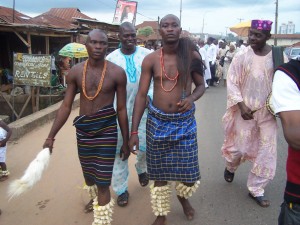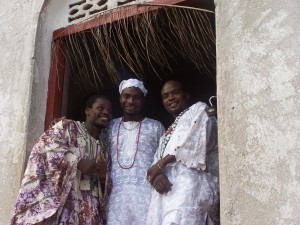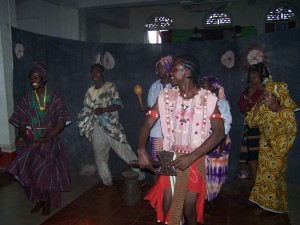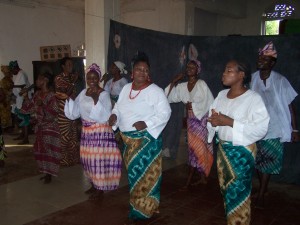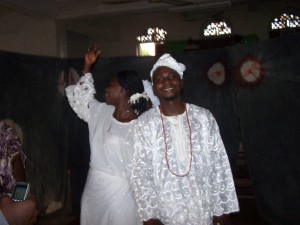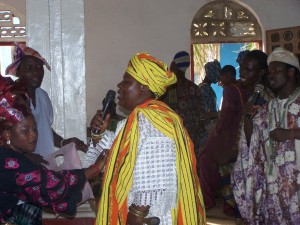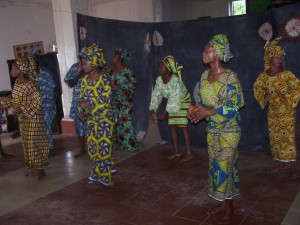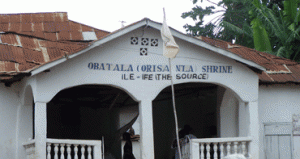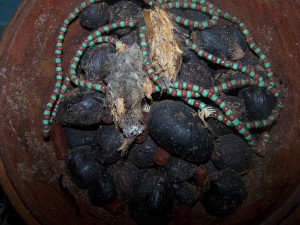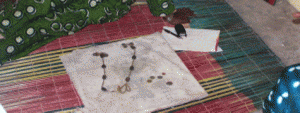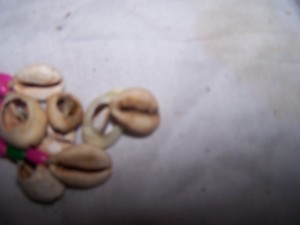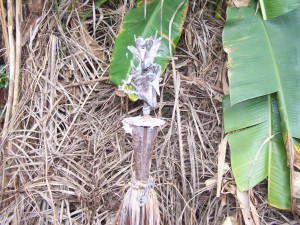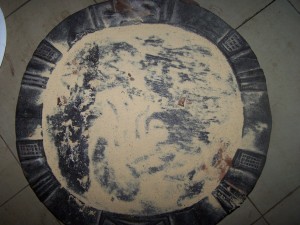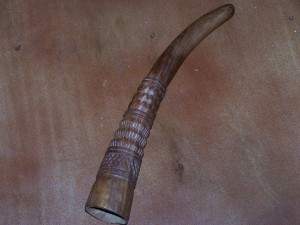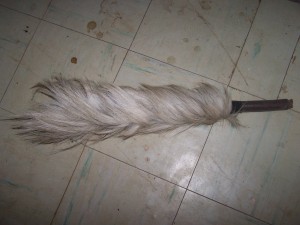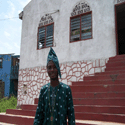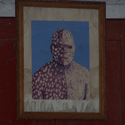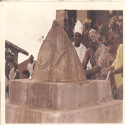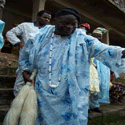
The spirit of Ifa can also be called Ase and among other things is carried by those who deliver the message of Ifa.
The idea of Ase comes in many forms . There are many types of Ase, the three major types of Ase include: The Ase that the Ikin Ifa is empowered with, the Ase that Babalawos carry and the Ase a person takes for heaven.
When one is initiated to Ifa their Ikin should be empowered with the Ase of Ifa . In some initiations where a person’s Ifa is not empowered with the Ase of Ifa , Ifa may not answer their prayers or help them in times of need. This happens because of improper initiation technique, such as 3 day initiations or fake incantations.
The other type of Ase is the type that will come with the person from the heaven. When a person comes from heaven with this type of Ase, whatever they say will happen. If they curse, the curse will affected the person intended, and if they pray their prayers will be immediately answered. They are considered very powerful. This type of person carrying the Ase from heaven is called, Eleyin Oke and God gave the Eleyin Oke power. However they are not dangerous but are well respected.
To recognize the Ase that a Babalawo possesses a client will hear the truth about their life and circumstances. When the Babalawo divines, if he does not speak the truth, then he doesn’t carry rhe true Ase of Ifa. If a Babalawo carries the true Ase of Ifa, it is not good for him to curse. It is not good for a babalawo to be bad tempered or to lose control. A babalawo that is foul tempered, lacks patiences, or curses often should avoided. These type of babalawos are on a destructive path for themselves and those around them.
There are 2 type of babalawo. A normal babalawo that carries the Ase of Ifa and the other is called a Babalariwo. Those that are Babalariwo are frauds and don’t actually carry the spirit or Ase of Ifa. They fake readings to gain money and false prestige. A true babalawo must help those that seek their assistance. A Babalariwo exacts some outrageous price for their services. For instance, telling a woman that she must have sex with him for the her spiritual work is completed. Ifa does not accept this, it is not proper and is an indication of fraud.
A good babalawo must know the Esunsun. The Esunsun is a moral code by which all babalawo must follow. An example of the Esunsun is: don’t sleep with your father’s wife, don’t lie, don’t steal, don’t hurt people with juju, honor your elders, don’t disobey your parents, etc. The Esunsun is what allows a babalawo to live a long life. When an elder that has lived a long life is asked how they have lived so long, he invariably replies, “Esunsun mimon!” (It is the Esunsun that allows me to live a long life!)
There are different ways for one to gain Ase. One way that a babalawo gains Ase is by taking a title. During the title initiation, all the babalawos will gather to pray, say incantations, and empower the title taker’s Ikin Ifa.
A person can also lose their Ase in several ways. One way is by being rude or showing poor character in front of the wrong person, such as an elder. They can also lose their Ase by leaking secrets, telling lies, or committing heinous acts on others. If one is given power or Ase through an initiation title or other means and is rude to those that first gave them the power or title (initiation), the Ase can be removed.
“Odo to ba gbagbe orisun o ma gbe ni.”
– The spring that forgets it’s origin, will run dry.
If a person forgets or is rude to the person that gave them the power in the fist place, the power given can still can still collect that power back. By dishonoring God, orisha, parents, oluwo, ancestors, females or elders, etc a person will lose Ase. Also if someone does not respect their own destiny they can lose power or Ase.
Omode bu iroko o poju weyin o ro pe orujo loluwere pa ni
-The child that insults the Iroko tree, doesn’t know the moment when the Iroko tree will punish him. Any babalawo that disrespects their elders will one day regret it, even if th punishment is not immediate.
Check back to Orishada.com for the Elements of Ifa part III: The Implements of Ifa where we will detail all the implements used in working with Ifa.
We also use this time to thank OLODUMARE for the new Olojo festival of November 20, 2009. We greet the AROLE ODUDUWA OBA OKUNADE SIJUWADE OLUBUSE IKEJI ORISA OLORI ALADE GBO GBO!
We use this time to greet our father ARABA AGBAYE OLUISESE AWOYEMI AWORENI ADISA MAKONRANWALE and all Awo of Ile-Ife.
We also greet all the Ile-Ife indigene, all the Yoruba at home and abroad in the diaspora, for the new Olojo festival that will start on november 20, 2009. The Ooni will carry the crown of Oduduwa to ode agbalasa and pray for all the world.
A SE YI SA MODUN
A SA MODUN SE MI O






